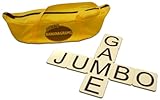Darryl Francis and Allan Simmons are the Dictionary Committee for WESPA, the World English Scrabble Players Association. They've basically been in charge of the British Scrabble word list since its inception.
The British Scrabble tournament word list (previously called SOWPODS and now apparently "CSW" as an abbreviation for Collins Official Scrabble Words) is formed by taking all the words in the most current American Scrabble tournament word list and adding in any valid words from the Chambers Dictionary and the Collins English Dictionary. Francis's interpretation of what constitutes a valid word is given in his response to a question about whether he would ever exclude words that satisfy all the rules:
Let's go back to a group of dictionary entries I mentioned earlier - the internet domain names for countries. There's around 200 of these, running from AC (Ascension Island) to ZW (Zimbabwe). They appear to satisfy the criteria for acceptability of words.
They're not dictionary-listed with an initial capital letter, nor a hyphen nor an apostrophe. They're not marked as abbreviations, they're not marked as foreign. On what basis should they not be allowed as two-letter words?
My answer to this question is that a) these two-letter abbreviations (called "country code top-level domains") are proper nouns, and b) they are in fact abbreviations, whether the dictionary says so or not.
Francis goes on to say:
Yet to allow a sudden influx of two-letter words, most of which are unpronounceable and not recognisable to the man in the street, would be to upset the fine balance that already exists with two-letter words.
Two-letter words are so key to the game that to double their number overnight would almost certainly provoke an outcry from Scrabble players - and probably the media, too.
I could portray this as a question of how to balance strict rule-following with common sense. Ultimately the Dictionary Committee chose not to include all those country codes, so they do use some common sense in their decisions. And they do have to make many difficult judgment calls. But it seems like they only rejected these country codes because there are so many of them and because Scrabble players would be upset by their inclusion.
To me, this demonstrates the subtle biases that have crept into the system to make official Scrabble dictionaries (unsurprisingly) give tournament Scrabble players what they want. As I understand it, what a plurality of them want is a word list that retains the words they have spent so much time memorizing, while occasionally adding handfuls of new words that increase Scrabble scores and make the game easier and more fun for them.
And this is perfectly fine, so long as these Scrabble word lists aren't misappropriated as authoritative sources for other games...



![[French Bananagrams]](http://3.bp.blogspot.com/-qc0_1zkWFTY/UJVp8FEnQ8I/AAAAAAAAAl8/sIBlipGIDgQ/s400/FrenchBananagrams-smaller.png)
![If I stay there can be no party. I must be out there in the night, staying vigilant. Wherever a party needs to be saved, I'm there. Wherever there are words that need anagramming, I'm there. But sometimes I'm not because I'm out there in the night staying vigilant, watching, lurking, running, jumping, hurdling, sleeping. No, I can't sleep. You sleep. I'm awake. I don't sleep. I don't blink. Am I a bird? No. I'm a banana. I am Bananagrammer. Or am I? Yes, I am Bananagrammer. [applies chapstick]](http://3.bp.blogspot.com/-dSRky9uBohU/TlcvRsF73SI/AAAAAAAAAhU/sVIGfVGu7eA/s400/BGR-plot-medium.png)
